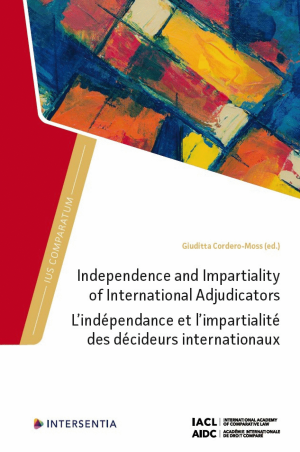
The principles of independence and impartiality are fundamental to the proper administration of justice. This book examines how these principles are implemented in a variety of settings: in national courts of selected jurisdictions, international courts and international arbitration.
The book collates special reports which address the topical issues currently under debate, such as the need to preserve the adjudicator’s independence from the other powers of the state, and the need to preserve the legitimacy of arbitration in investor-state disputes. Rapporteurs also examine topics such as the standard required for independence and impartiality, the selection criteria and the selection method, the authority in charge of making the selection (a party appointment or an appointing authority), the mechanisms to counter-balance the influence that may be exercised by the appointing authority, the adjudicator’s duty of disclosure, the adjudicator’s immunity, the adjudicator’s rights and duty after the term of service, codes of conduct, and the consequences of a breach of the different duties.
The general report provides a comparative analysis of the mechanisms implemented in the various systems, and highlights their similarities and differences. The analysis refutes some of the assumptions commonly made in the ongoing debate on the reform of the mechanism for individual-state dispute resolution, especially for investment arbitration. In particular, the comparative analysis of the mechanisms used within international courts does not confirm the assumption that a permanent court would resolve issues of legitimacy that are currently discussed in connection with investment arbitration (such as conflict of interests, double-hatting and issue conflict).